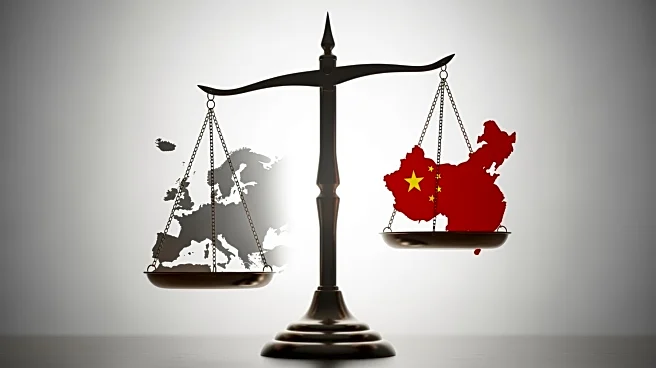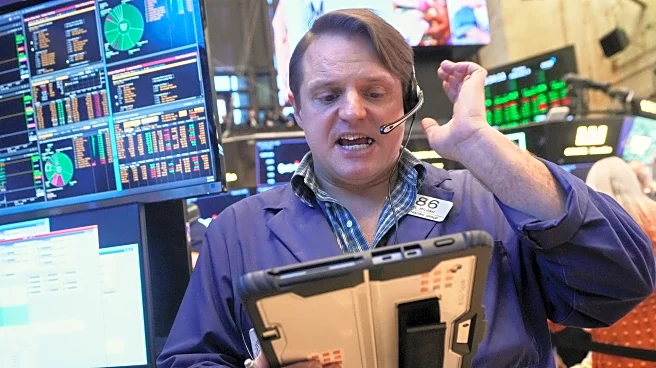What's Happening?
Bundesbank President Joachim Nagel has urged Europe to adopt a more assertive approach in its trade dealings with China to protect its own interests. Speaking in Washington, Nagel emphasized that Europe should
leverage its economic strength and large population to negotiate more favorable terms. He warned against a trade war but stressed the importance of safeguarding European markets. The call comes amid U.S. tariffs that have led China to redirect goods to other markets, affecting European companies. Nagel's comments highlight the need for Europe to balance dialogue with protective measures.
Why It's Important?
Nagel's remarks underscore the challenges Europe faces in maintaining competitive trade relations with China. As China reroutes goods due to U.S. tariffs, European companies struggle to compete with lower-priced imports. The situation is exacerbated by China's restrictions on materials like rare earths, which are crucial for European industries. A tougher stance could help Europe protect its markets and ensure fair competition. The call for a more offensive strategy reflects broader concerns about China's growing economic influence and the need for Europe to assert its position in global trade.
What's Next?
Europe may consider implementing policies to strengthen its trade position with China, potentially involving tariffs or other protective measures. The European Union could engage in diplomatic efforts to negotiate better terms and address trade imbalances. Major European companies will likely monitor developments closely, as changes in trade policy could impact their operations and competitiveness. The situation may also prompt discussions within the EU about the balance between free trade and protectionism.
Beyond the Headlines
Nagel's comments reflect broader geopolitical tensions between major economic powers. The trade dynamics between Europe, China, and the U.S. are part of a larger narrative about shifting global economic power. Europe's response to these challenges will influence its role in international trade and its ability to navigate complex economic relationships.











